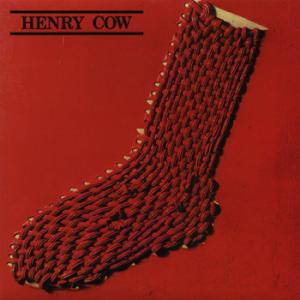Strawberry Bricks Entry:
Following a BBC Top Gear session in June 1974, Henry Cow eventually merged with the German-Anglo band Slapp Happy. Originally from Hamburg, the trio set up shop in the UK after signing with Virgin Records; they first re-recorded their second album, Casablanca Moon, after Polydor refused to release it (recorded with Faust, the original recording eventually saw release as Acnalbasac Noom in 1980). The first joint release between the two bands was Desperate Straights in March 1975, which saw Henry Cow's avant-music mixed with the heady cabaret of Slapp Happy, and the take-it-or-leave-it voice of Dagmar Krause. Though it mostly comprised of Slapp Happy members' Anthony Moore and Peter Blegvad's songwriting, the results were generally promising, leading to a second record in May, In Praise Of Learning. Here, the songwriting was more democratic. "War" leads off with a rousing melody and jazzy meter, followed by the epic construct of Tim Hodgkinson's "Living in the Heart of the Beast;" treading both the progressive and rock music, even Krause sounds tuneful on the track-it's the band's finest recording. "Beginning The Long March" and "Morning Star" are group compositions between the two bands; but mostly improvisations that drift into avant-weirdness. Chris Cutler and Fred Frith's "Beautiful as the Moon - Terrible as an Army with Banners" approaches a terrain similar to Magma in the fade, before descending into atonality. As with most of Henry Cow's output, none of it is easy listening-but that's not to say it isn't without reward. Anyway, the collaboration didn't last. Moore went solo, while Blegvad and John Greaves would unite for the Kew.Rhone album in 1977. Krause jumped ship and joined Henry Cow, appearing on the live Concerts album (with guest Robert Wyatt) in 1976. However, divisions in the Henry Cow saw it split in two: Frith, Cutler and Krause would further a vocal-based approach as the Art Bears, releasing Hopes and Fears in May 1978, while a final instrumental album from Henry Cow, Western Culture, would appear in 1979. All would then champion the Rock In Opposition movement and forge an alternative "industry" for like-minded artists; based partly on their political leanings, and partly out of necessity.


